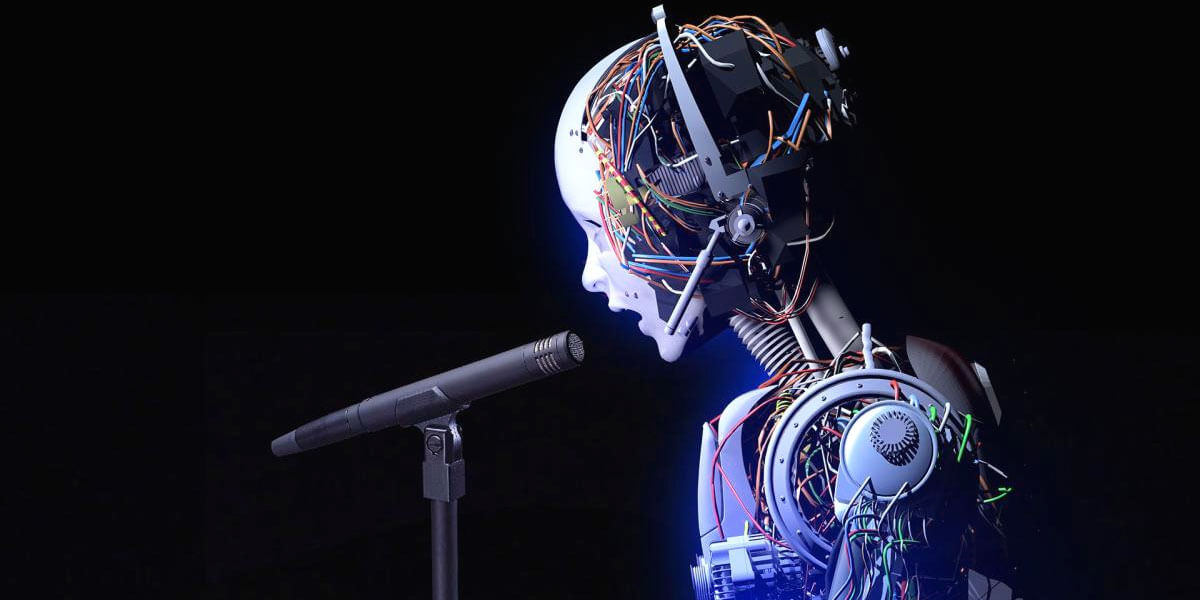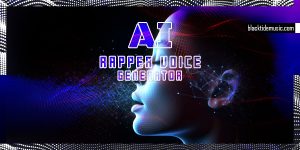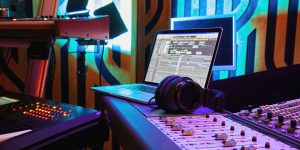In today’s music scene, the use of artificial intelligence (AI) is becoming more common. This raises a big question: “Will AI replace musicians?” As technology advances, AI’s role in making audio compositions is expanding. This is changing how we think about music and creativity. In this discussion, I’ll explore what AI means for the music industry and whether it might someday take over the unique touch that musicians bring to their art.
Arguments for AI replacing musicians
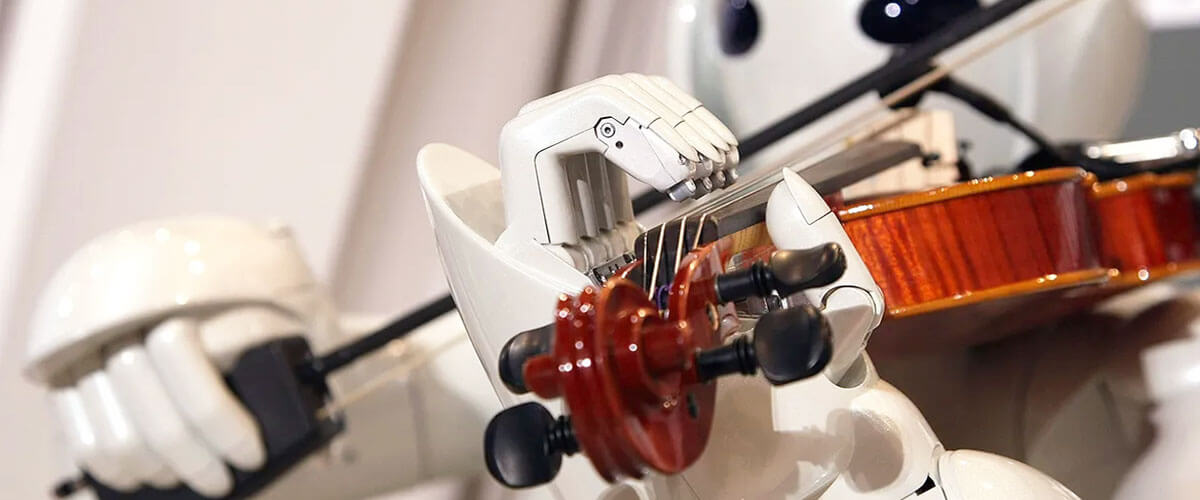
Now, picture this: AI-powered generators cranking out tunes faster than you can say “rock ‘n roll.” People are discussing whether these digital maestros might replace human musicians someday.
So, here are the beats of the argument:
- Efficiency. New technologies can whip up fresh compositions in a snap. That’s a game-changer for audio producers and creators looking to drop tracks at the speed of sound.
- Democratization. Artificial intelligence makes track creation accessible to everyone, whether you’re a seasoned pro or just strumming your air guitar. No fancy gear or music school tuition is needed.
- Economic groove. If you’re in the business of making jingles or soundtracks, AI’s your budget-friendly buddy. It’s often cheaper than hiring human musicians, and in the corporate world, that’s music to the ears.
- Consistency. Artificial intelligence tunes are like your favorite coffee shop’s playlist — always the same vibe. Perfect for those places where you want the mood just right all the time.
- Innovation. Artificial intelligence is like Doc Brown from Back to the Future, only in an audio lab, experimenting with genres you’ve never even heard of. It’s pushing the boundaries of what music can be.
But hold the record: these arguments have their B-sides, too. Artificial intelligence in music isn’t all harmony and melody. It’s got its share of discord, and while we ponder the future of the music industry, we’re in for one heck of a remix.
Arguments against AI replacing musicians

While artificial intelligence tracks may have catchy beats, some deep bass notes are of concern. Here’s what’s spinning:
- Lack of human creativity and emotional depth. While AI can compose music, it lacks the nuanced touch of a human artist. An audio composition is a profound expression of human emotion and creativity. Artificial intelligence may hit the right notes, but it can’t capture the soulful essence of human musicians.
- Potential job displacement. The increasing use of new technologies in music creation raises concerns about job losses within the industry. This could potentially impact musicians and composers, leading to a reduction in the diversity of styles and expressions.
- Homogenization of styles. There’s a valid worry that such audio compositions might lead to a sonic landscape filled with uniformity. Algorithms tend to stick to familiar patterns, potentially stifling genuine innovation. This could result in music lacking the unique character and creativity human musicians bring.
- Resistance to change. Not everyone’s ready to dance to the artificial intelligence tune. Musicians and fans alike might resist generated audio composition, viewing it as a threat to traditional music-making. This resistance can slow down the adoption of new technologies in music.
As we ponder, “Will artists be replaced by AI,” it’s essential to strike a balance between the innovation artificial intelligence brings and the soulful authenticity of human track-making. It’s a harmony we’ll have to fine-tune as the melody of AI music plays on.
Ethical and legal implications of AI in music
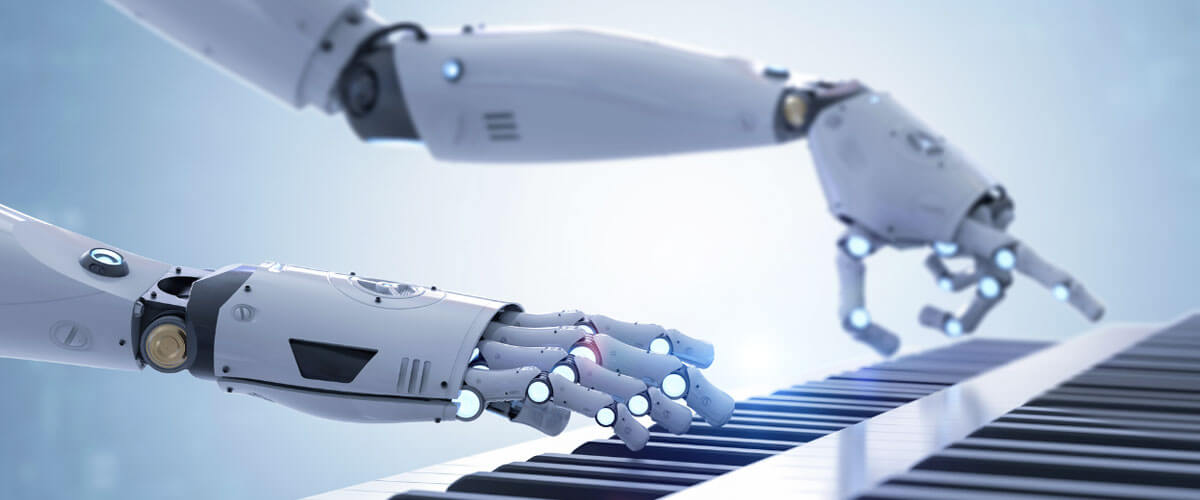
As the harmony between artificial intelligence and music grows, so do the ethical and legal dilemmas that require our attention. Here are some pertinent issues regarding the use of AI in music creation:
- Ownership of copyrights and infringement. The use of artificial intelligence in audio production raises questions about copyright ownership and infringement. Who holds the rights to audio compositions created by artificial intelligence, and how can we ensure that generated music complies with copyright laws?.
- Fair compensation. Another crucial concern is the fair compensation of musicians and composers. How can we guarantee that these creative individuals receive just compensation for their work, especially in the context of generated audio compositions?.
- Transparency. Ensuring transparency in the use of artificial intelligence for audio composition creation is essential. How can we make consumers aware of the role AI plays in the music they listen to and maintain transparency about the track’s origins?.
- Creativity and originality. Generated music challenges the notions of creativity and originality. How can we be certain that audio compositions created by artificial intelligence are genuinely original and not merely duplicating existing compositions?.
As AI takes over music, addressing these ethical and legal concerns becomes paramount in shaping the future landscape of the industry. Striking a harmonious chord between technological advancement and ethical responsibility will be instrumental in ensuring that the world of generated audio compositions thrives while upholding the rights and creativity of human musicians.
Examples of AI-generated music
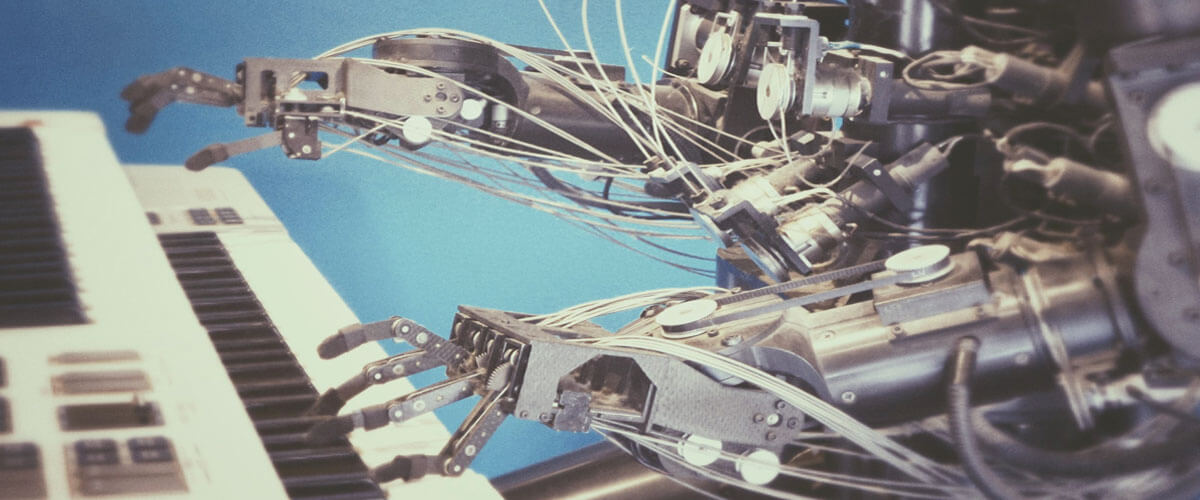
In recent years, generated audio compositions have gained popularity, showcasing the capabilities of artificial intelligence in the creative realm. Here are some notable examples of tracks crafted by artificial intelligence:
| Track Name | Creator | Details |
|---|---|---|
| “Daddy’s Car” | Flow Machines by Sony CSL | This song, produced by Sony’s artificial intelligence system, encompasses both melody and lyrics generated entirely by artificial intelligence. |
| “Zone Out” | Amper Music | “Zone Out” is a composition wholly crafted by Amper music generator, allowing users to specify parameters like genre, tempo, and mood for personalized tracks. |
| “Break Free” | Taryn Southern, in collaboration with Amper | Co-written with Taryn Southern, this song was made possible with Amper, which provided the musical backdrop. |
| “Beautiful the World” | SKYGGE (Benoît Carré) | Benoît Carré, the musician behind SKYGGE, employed an AI system to create both melody and lyrics for this composition. |
Generated audio compositions offer musicians new creative possibilities. But how does AI music work? Essentially, artificial intelligence algorithms analyze vast datasets of existing tracks to identify patterns, melodies, and harmonies. This information is then used to generate entirely new compositions. Musicians can use AI-generated audio compositions as a source of inspiration, incorporating elements into their work to create something truly unique. Additionally, artificial intelligence can help musicians experiment with different styles and genres, pushing the boundaries of their creativity. While AI-generated tracks have gained popularity, whether they will entirely replace human creativity remains uncertain.
I made a list of artificial intelligence services you can use to create music:
- AI celebrity voice generator.
- AI voice generator characters.
- President AI voice generator.
- AI rapper voice generator.
Conclusion
In conclusion, while artificial intelligence presents both opportunities and challenges to the music industry, it is unlikely to replace human musicians entirely. Audio compositions generated with the aid of artificial intelligence have the potential to be a valuable tool for musicians and composers. However, addressing the ethical implications and consequences of AI in music creation is crucial to ensure responsible and creative use of this technology.

